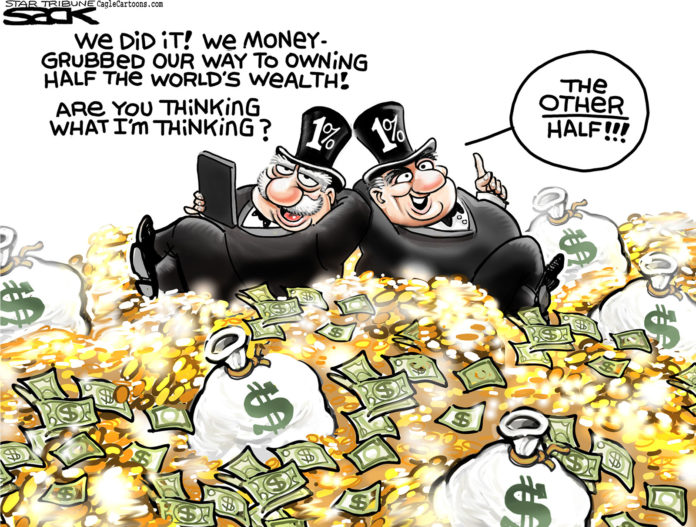BY KENNETH WELLS
 With the loss of the middle-class in the socio-economics of the United States a looming certainty, we can only ask ourselves, “What must happen to rejuvenate a meaningful atmosphere for all to live in?”
With the loss of the middle-class in the socio-economics of the United States a looming certainty, we can only ask ourselves, “What must happen to rejuvenate a meaningful atmosphere for all to live in?”
The Middle Class was [1] the outcome of a transition from an agricultural-based economy to an industrial-manufacturing economy, [2] World War II and [3] the rise of organized labor during the next three decades.
The transition from agriculture to manufacturing caused a drastic shift in the way people lived. People moved from rural areas, where their closest neighbor might be miles away, to city living – stacked on top of each other – a condition that is still prevalent today.
Modern farming equipment, faster methods of transportation and the promise of a more steady income was the downfall of the “family farm.”
World War II not only pulled the United States out of a “Wall Street” and “top heavy wealth” inequality. It also brought the U.S. out of the Great Depression.
While large segments of the male populations in industrialized worlds were involved in military operations, women were called upon to fill industrial-production vacancies. When the war ended and service men came home, they found their prior production jobs filled by females. That brought about another socio-economic shift – madam now working to add to the family’s income.
Many of those who were drafted or enlisted into the different branches of the military found their educations interrupted which produced a “hole” in their economic advancement. The answer to that problem was congressional legislation – the GI Bill – which provided funds to returning servicemen/women with which to complete their educations. Tied to the GI Bill was another Middle Class improvement – U.S. government-backed financing with which the GI could purchase a home.
While all of this was being accomplished, President Harry S. Truman reorganized the U.S. War Department into what is now known as the Department of Defense. This action removed the Air Corps from the Army and created a stand-alone U.S. Air Force. Going one step farther, he de-segregated ALL of the armed services of the United States.
Low wages, unsafe working conditions, child labor and excessive working hours with inadequate compensation were the initial socio-economic problems organized labor focused on. Improving those conditions brought about the rise of a class of people who could expect that their families would have a home of their own, enough to eat, a proper education for their children and savings for retirement.
To once again build that same Middle Class will require strong socio-economic action by federal and state governments. To overcome today’s inequalities, we will need politicians who are not empowered by financial organizations and/or large corporations donating to their “war chests.”
Welfare to corporations which use our highways, railroads and natural resources significantly while paying insignificantly in use taxes, and tax giveaways for companies to relocate or expand, must cease.
Those same politicians should introduce a progressive income tax system which disallows entities at the top of the income level to pay a smaller percentage of their income in year-end taxes than the lower income tiers. Sadly, today, there is little hope for this.
– Kenneth Wells lives in Ratliff City, OK, and is a regular contributor to The Oklahoma Observer







